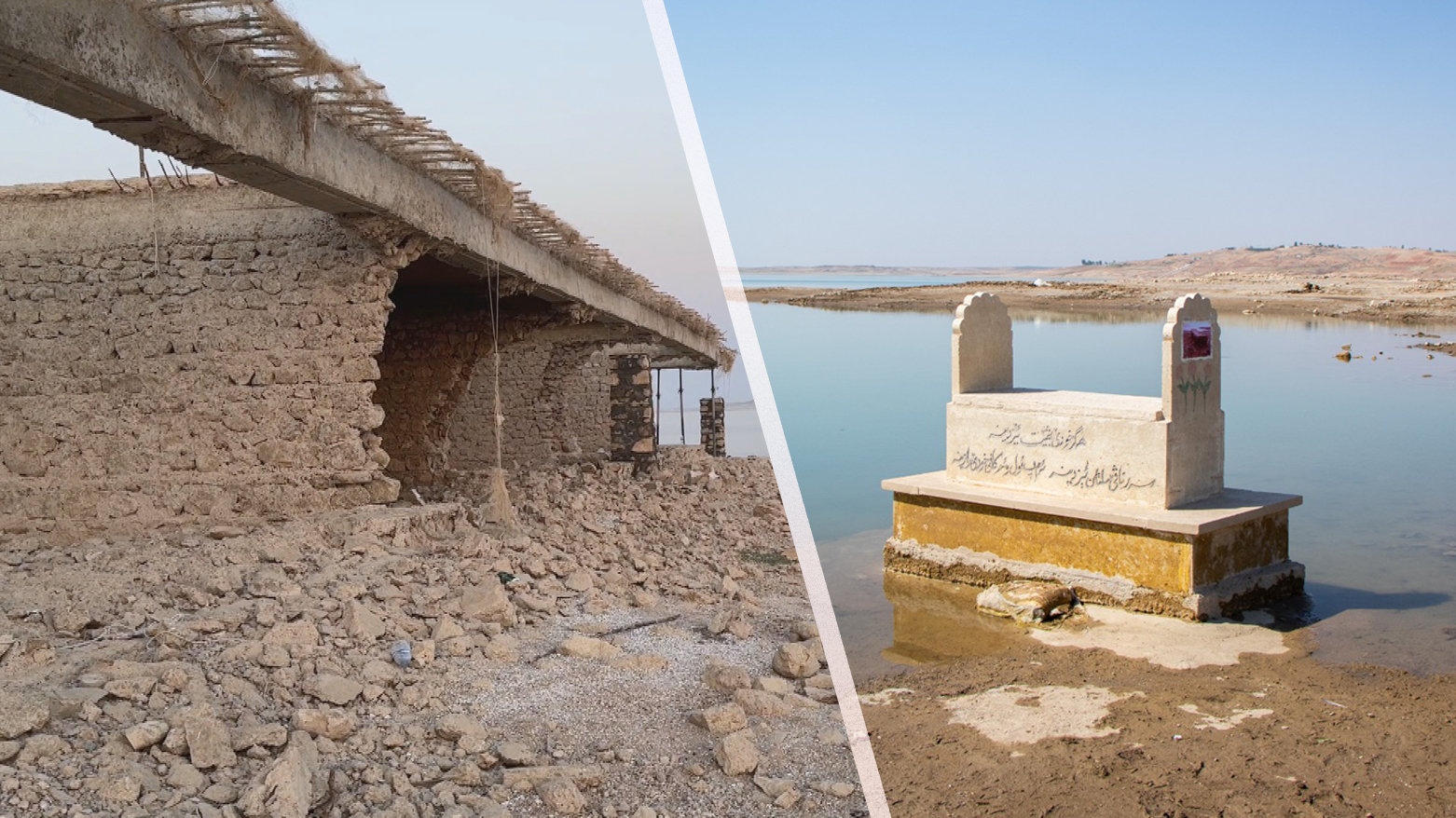Mosul Dam's Low Waters Reveal Martyr's Grave and Ancient City
Receding Mosul Dam waters reveal the submerged village of Old Khanke, including a martyr's grave from 1961, and a major archaeological find of an ancient city and Hellenistic-era cemetery.

ERBIL (Kurdistan24) – The receding waters of the Mosul Dam have unveiled a poignant intersection of recent and ancient history, revealing both the submerged village of Old Khanke, where residents now visit the rediscovered grave of a local martyr, and a major archaeological site dating back thousands of years.
As the water level has dropped, former residents have returned to the exposed landscape to share childhood memories and pay respects at the grave of Juboor Beko Ali, a villager who was martyred during an attack by the Iraqi regime in 1961.
The grave has become a symbol of the lost village, which had more than 200 households before it was submerged.
One resident noted this is the third time the tomb has reappeared from the lakebed. "We said this is Juboor Beko Ali," he recalled. "Whenever the water rises, it goes under the sea [lake]; when the water goes down, it re-emerges." He confirmed that people, especially from the community of Khanke, continue to visit the site.
The reappearance of the grave has brought back vivid memories of the battle that defined the village's final years. Another former resident, who was seven years old in 1961, recounted the assault.
"Two airplanes came from this direction; some forces from the Arab village came from over here, they strafed the village with machine guns, fired rockets, and passed over and left," he stated, explaining the attack continued with three separate aerial passes before ground forces moved in. "The battle for our village lasted for seven days. On the first day, this brave man was martyred. Juboor Beko Ali was martyred. And they also took his body, and they took some two or three hundred calves from us, and our sheep, and they took them and left."
While the low water levels have had negative impacts, for the people of this village they have allowed for the rediscovery of important landmarks where, 64 years ago, an epic story was recorded.
In a separate and significant development, the General Directorate of Antiquities and Heritage of Duhok Province announced that the receding water has also uncovered a major archaeological find in the same area.
Bekas Brifkani, the Director of Antiquities and Heritage for the province, announced the discovery of "a city that was inhabited more than five thousand years ago, in addition to the largest cemetery containing clay coffins, which dates back to the Hellenistic period (300 B.C.)."
Brifkani indicated that while the site was initially located in 2023, the extensive drop in the Mosul Dam's water level this year has allowed for excavations to commence.
"We are now busy separating the archaeological artifacts from the forty graves that have been found," he said. "These artifacts will be transferred to a specialized museum."
He also noted that the excavation work is being conducted entirely by local archaeologists and specialists from the directorate, with the full support of the Duhok Governorate.
The discovered graves were found within the old Khanke sub-district, which overlooks the Mosul Dam lake in Duhok province.
Kurdistan24 correspondent Derman Baadri contributed to this report.
